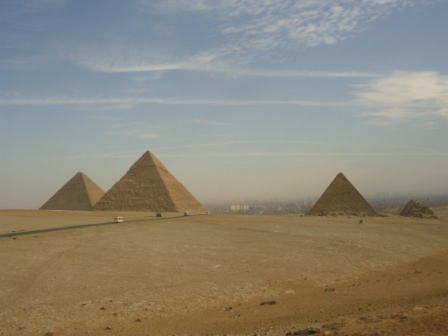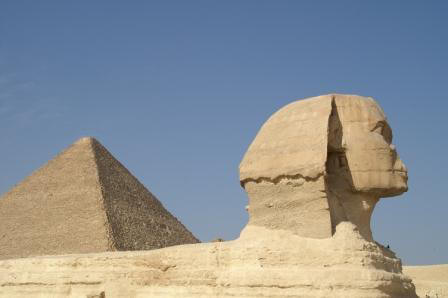Why Visit Egypt?
Cairo

Pyramids of the Giza Plateau
Egypt is a Middle Eastern country with a predominantly Muslim population. This might deter some Westerners. However, Egyptians are generally welcoming to tourists. The primary concern is not the country's location or politics, but rather its significant challenges with hygiene. The lack of handwashing and general hygiene standards can pose serious health risks. Many visitors report contracting "Cairo Belly" or more severe illnesses during their stay. Intestinal infections can be severe enough to require hospitalization, something best avoided while on vacation. This poor hygiene may stem from a scarcity of fresh water, as the plumbing infrastructure in Egypt is rudimentary at best. To increase your chances of staying healthy, carry ample alcohol-based hand sanitizer and toilet paper, and exercise extreme caution regarding what you consume. When planning your trip, do not economize excessively on travel and accommodation. While spending more is not a guarantee of better plumbing or food quality, it might reduce your risk of falling ill. The most effective ways to avoid sickness are to refrain from drinking tap water, avoid ice in your drinks, and abstain from uncooked food. Additionally, be prepared for some meals of subpar quality, often containing grit from desert sand blown into them during preparation. Indeed, the only way to be absolutely certain of not getting sick is to bring your own food.
So, with these health concerns, why bother to visit Egypt?

Thousands and thousands of giant blocks
It is a land steeped in ancient history. Its buildings and monuments offer profound insights into our civilization from 5,000 years ago. The Pyramids of the Giza Plateau are truly awe-inspiring. From an architectural standpoint, they rival many modern structures in their ability to evoke a sense of wonder. And when you contemplate the immense effort required to construct them, you cannot help but be struck by the sheer force and tyranny that must have been involved. They stand beside the enigmatic Sphinx, which gazes intently out into the desert. Archaeologists still lack definitive answers regarding its builders and the precise time of its creation.
The Cairo Museum is overflowing with artifacts. It houses the complete contents of Tutankhamun's tomb, including exquisite jewelry, remarkable furniture, and beautiful stone carvings and sculptures. However, much of the displays appear neglected and dusty, seemingly untouched since their initial placement by a Victorian-era curator. Fortunately, a new, modern museum is reportedly under construction.

The Sphinx of the Giza Plateau
Countless temples and ancient remains are scattered throughout the desert along the banks of the Nile; exploring them all could easily consume a lifetime. Read my next article to experience some of these remarkable sites.
Nowhere else in the world will you encounter this unique combination of historical significance and cultural experiences. This is precisely why the risks associated with visiting Cairo, in the desert land of Egypt, are ultimately worth taking.